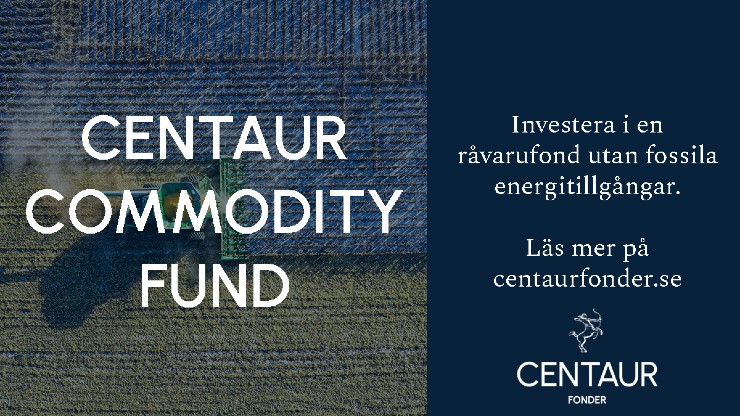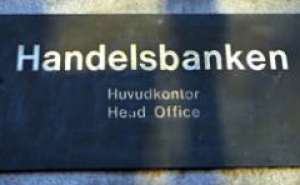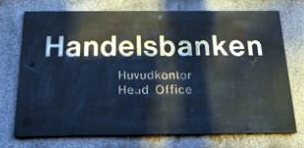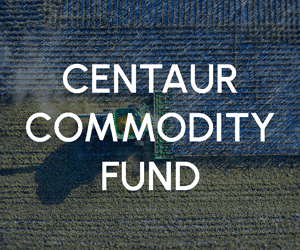Analys
SHB Råvarubrevet 16 november 2012
 Råvaror allmänt
Råvaror allmänt
Negativt risksentiment men intressant marknad
Risksentimentet har fått sig en törn under veckan, mycket beroende på negativa rubriker på temat recession i Europa. I den negativa vågskålen väger också spekulationerna kring budgetstupet i USA som inverkar negativt på konsumtionen i USA. Många väntar med konsumtion till dess att man vet hur privatekonomin kommer att bli efter de justerade skatterna som krävs för att lösa budgetstupet efter nyår. Makrodata i USA har också överträffat förväntningarna ganska länge och vi flaggar för en nalkande risk att USA kommer börja leverera besvikelser i makrodata. Kina har utsett nya ledare till de 7 positionerna i den stående kommittén. Inga nyheter som påverkar marknaden har släppts i samband med kongressen i Peking. Vi fortsätter hålla basmetaller högt på Kinas återhämtning. Handelsbankens chefsekonom är nyss hemkommen från Kina och säger att återhämtningen i Kina och resten av Asien nu är på väg. Kinas exportökning på 30 % i oktober indikerar att hela regionen reser sig.
Basmetaller
Bättre Kina stärker basmetallerna
Basmetallerna har haft en relativt god vecka, med uppgångar framförallt för zink (upp 2.1%) och aluminium (upp 1.4 %). Endast nickel föll och slutade veckan med en nedgång på blygsamma 0.4 %. Uppgången för aluminium och zink kan förklaras med att Kina (närmare bestämt SRB, State Reserve Bureau) tänker öka sina lager med 100 000 ton av vardera metallen.Volymen är dock inte speciellt stor eftersom det endast handlar om två dagars förbrukning för Kina. Istället pekar aktörer på marknaden på det starka signalvärdet. Regeringen vill sända positiva signaler till företagen och ingjuta framtidstro i basindustrin. Koppar har fortsatt sin uppgång, framförallt till följd av positiva tongångar från Kina. Lagersiffrorna för LME-koppar verkar stödja utvecklingen; lagernivåerna rapporteras vara på 4-årslägsta. Vi är fortsatt positiva till samtliga basmetaller
Ädelmetaller
Fiscal cliff fortsätter att dominera
Efter förra veckans uppgång har guldet handlats ned under veckan bland annat på grund av en strakare dollar. Guldet handlas just nu på 1714,20 USD/oz en nedgång på 1,25 % sedan veckans öppning. Fiscal Cliff (budgetstupet) har fortsatt att dominera nyhetsutbudet under den gånga veckan. Marknaden har påverkats både av rapporter om en svagare efterfrågan på fysisk leverans av guld, och fortsatta stimuleringar av världens centralbanker. Bank of Japan är nu den senaste av en rad centralbanker som förväntas driva en än mer expansiv penningpolitik framöver. Arbetet vid de sydafrikanska platinagruvorna är sedan mitten på veckan i stort sätt återupptaget efter en 2 månader lång strejk, bitvis våldsam. I kölvattnet av detta har ett större utbud på marknaden pressat priserna, och platinum handlas nu något lägre än vid förra veckans stängning.
Energi
Ökad oro i mellanöstern ger oljan stöd
Det har varit små svängningar på oljepriset (brent) under veckan och handlas just nu i princip oförändrad runt 108 USD/fat. Veckan började med fallande priser på oro för lägre efterfrågan, men stärktes senare vid oro i mellanöstern efter mordet på en palestinsk ledare. OPEC medlemmarna, Saudiarabien och UEA (United Arab Emirates) uttryckte i veckan att de är nöjda med nuvarande oljepris vilket dämpar för ytterligare höjningar. Amerikanska lagersiffror visar på stigande lager dock lägre än förväntat. 1,1 miljoner fat mot väntade 1,9 miljoner fat. Efter den eskalerande oron mellan Israel och Hamas ser vi att Brentpriset får stöd trots svag data i övriga ekonomin. Vi tycker därför att en kortsiktig tro på stigande oljepris är på sin plats nu. Fortsatt svagt sentiment på elmarknaden till följd av det våta och milda vädret. Låga spotpriser och prognoserna visar på temperatur 3 grader över normalt med nederbörd kring normalen kommande 10 dagar (förväntad energibalans 7 TWh v 47). Utsläppsrätterna faller på besvikelsen över EU:s bristande engagemang kring en potentiell strukturförändring, det ser ut som vi får vänta ytterligare 6 månader på ett konkret förslag till att minska överskottet av rätter. Vi står fast vid neutral till sälj för elpriset och inväntar riktig kyla för marknaden skall orka vända upp. Idag noterar vi våra raka certifikat EL H, och EL S H, som följer utvecklingen på Nordisk el och närmaste kvartalet.
Livsmedel
Höga skördar pressar kaffepriset
Kaffepriset, närmare bestämt terminspriset på arabica, (underliggande till SHB Coffe) har fallit med hela 51 % sedan maj 2011. Det höga priset under 2011 har lett till att fler har kaffeodlare har ökat sin produktion vilket nu resulterat i goda skördar och likaså ökande lager. De lager som ICE bevakar har bara i år stigit med 61 % och vi har nu lagernivåerna sedan april 2010. Brasilien, världens största producent och exportör, uppskattas att producera 50,5 miljoner säckar (en säck=60kg) i år, vilket är rekord! Terminspriser på vete har gått ned kraftigt sedan förra veckan i både Chicago och Paris. Det amerikanska höstvetet lider fortfarande av torrt och varmt väder och någon klar bättring ser inte ut att vara i sikte. Förutom brist på regn förvärras situationen av temperaturer över det normala för årstiden. I Argentina har det blivit lite torrare och varmare, vilket gynnar pågående skörd. Eventuell nederbörd gör nog mindre nytta framöver och allteftersom skörden drar söderut i landet önskar fler och fler istället torr väderlek. Med försämrade förutsättningar för nästa års skörd bör en eventuell nedsida vara väldigt begränsad på kort sikt. Dock tror vi på lägre priser på längre sikt.
Handelsbankens Råvaruindex
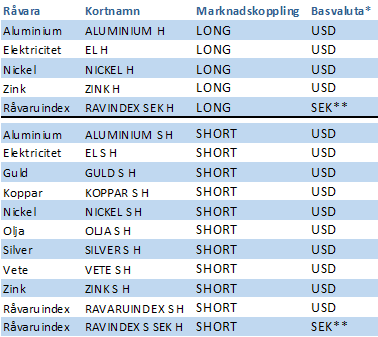
Handelsbankens råvaruindex består av de underliggande indexen för respektive råvara. Vikterna är bestämda till hälften från värdet av global produktion och till hälften från likviditeten i terminskontrakten.
[box]SHB Råvarubrevet är producerat av Handelsbanken och publiceras i samarbete och med tillstånd på Råvarumarknaden.se[/box]
Ansvarsbegränsning
Detta material är producerat av Svenska Handelsbanken AB (publ) i fortsättningen kallad Handelsbanken. De som arbetar med innehållet är inte analytiker och materialet är inte oberoende investeringsanalys. Innehållet är uteslutande avsett för kunder i Sverige. Syftet är att ge en allmän information till Handelsbankens kunder och utgör inte ett personligt investeringsråd eller en personlig rekommendation. Informationen ska inte ensamt utgöra underlag för investeringsbeslut. Kunder bör inhämta råd från sina rådgivare och basera sina investeringsbeslut utifrån egen erfarenhet.
Informationen i materialet kan ändras och också avvika från de åsikter som uttrycks i oberoende investeringsanalyser från Handelsbanken. Informationen grundar sig på allmänt tillgänglig information och är hämtad från källor som bedöms som tillförlitliga, men riktigheten kan inte garanteras och informationen kan vara ofullständig eller nedkortad. Ingen del av förslaget får reproduceras eller distribueras till någon annan person utan att Handelsbanken dessförinnan lämnat sitt skriftliga medgivande. Handelsbanken ansvarar inte för att materialet används på ett sätt som strider mot förbudet mot vidarebefordran eller offentliggörs i strid med bankens regler.
Analys
Tightening fundamentals – bullish inventories from DOE
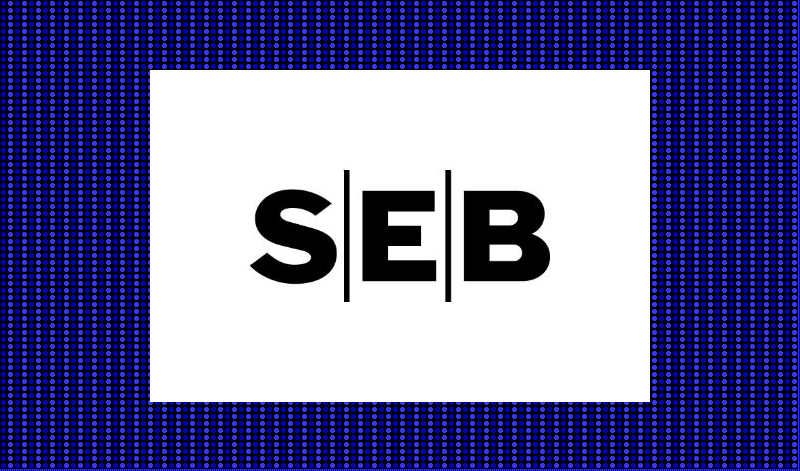
The latest weekly report from the US DOE showed a substantial drawdown across key petroleum categories, adding more upside potential to the fundamental picture.

Commercial crude inventories (excl. SPR) fell by 5.8 million barrels, bringing total inventories down to 415.1 million barrels. Now sitting 11% below the five-year seasonal norm and placed in the lowest 2015-2022 range (see picture below).
Product inventories also tightened further last week. Gasoline inventories declined by 2.1 million barrels, with reductions seen in both finished gasoline and blending components. Current gasoline levels are about 3% below the five-year average for this time of year.
Among products, the most notable move came in diesel, where inventories dropped by almost 4.1 million barrels, deepening the deficit to around 20% below seasonal norms – continuing to underscore the persistent supply tightness in diesel markets.
The only area of inventory growth was in propane/propylene, which posted a significant 5.1-million-barrel build and now stands 9% above the five-year average.
Total commercial petroleum inventories (crude plus refined products) declined by 4.2 million barrels on the week, reinforcing the overall tightening of US crude and products.
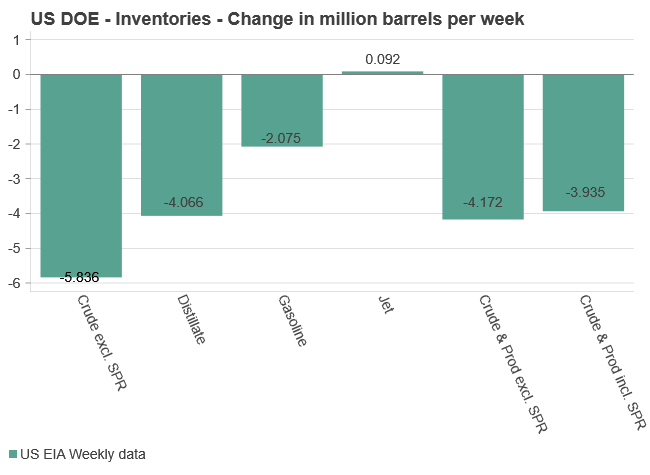

Analys
Bombs to ”ceasefire” in hours – Brent below $70

A classic case of “buy the rumor, sell the news” played out in oil markets, as Brent crude has dropped sharply – down nearly USD 10 per barrel since yesterday evening – following Iran’s retaliatory strike on a U.S. air base in Qatar. The immediate reaction was: “That was it?” The strike followed a carefully calibrated, non-escalatory playbook, avoiding direct threats to energy infrastructure or disruption of shipping through the Strait of Hormuz – thus calming worst-case fears.

After Monday morning’s sharp spike to USD 81.4 per barrel, triggered by the U.S. bombing of Iranian nuclear facilities, oil prices drifted sideways in anticipation of a potential Iranian response. That response came with advance warning and caused limited physical damage. Early this morning, both the U.S. President and Iranian state media announced a ceasefire, effectively placing a lid on the immediate conflict risk – at least for now.
As a result, Brent crude has now fallen by a total of USD 12 from Monday’s peak, currently trading around USD 69 per barrel.
Looking beyond geopolitics, the market will now shift its focus to the upcoming OPEC+ meeting in early July. Saudi Arabia’s decision to increase output earlier this year – despite falling prices – has drawn renewed attention considering recent developments. Some suggest this was a response to U.S. pressure to offset potential Iranian supply losses.
However, consensus is that the move was driven more by internal OPEC+ dynamics. After years of curbing production to support prices, Riyadh had grown frustrated with quota-busting by several members (notably Kazakhstan). With Saudi Arabia cutting up to 2 million barrels per day – roughly 2% of global supply – returns were diminishing, and the risk of losing market share was rising. The production increase is widely seen as an effort to reassert leadership and restore discipline within the group.
That said, the FT recently stated that, the Saudis remain wary of past missteps. In 2018, Riyadh ramped up output at Trump’s request ahead of Iran sanctions, only to see prices collapse when the U.S. granted broad waivers – triggering oversupply. Officials have reportedly made it clear they don’t intend to repeat that mistake.
The recent visit by President Trump to Saudi Arabia, which included agreements on AI, defense, and nuclear cooperation, suggests a broader strategic alignment. This has fueled speculation about a quiet “pump-for-politics” deal behind recent production moves.
Looking ahead, oil prices have now retraced the entire rally sparked by the June 13 Israel–Iran escalation. This retreat provides more political and policy space for both the U.S. and Saudi Arabia. Specifically, it makes it easier for Riyadh to scale back its three recent production hikes of 411,000 barrels each, potentially returning to more moderate increases of 137,000 barrels for August and September.
In short: with no major loss of Iranian supply to the market, OPEC+ – led by Saudi Arabia – no longer needs to compensate for a disruption that hasn’t materialized, especially not to please the U.S. at the cost of its own market strategy. As the Saudis themselves have signaled, they are unlikely to repeat previous mistakes.
Conclusion: With Brent now in the high USD 60s, buying oil looks fundamentally justified. The geopolitical premium has deflated, but tensions between Israel and Iran remain unresolved – and the risk of missteps and renewed escalation still lingers. In fact, even this morning, reports have emerged of renewed missile fire despite the declared “truce.” The path forward may be calmer – but it is far from stable.
Analys
A muted price reaction. Market looks relaxed, but it is still on edge waiting for what Iran will do

Brent crossed the 80-line this morning but quickly fell back assigning limited probability for Iran choosing to close the Strait of Hormuz. Brent traded in a range of USD 70.56 – 79.04/b last week as the market fluctuated between ”Iran wants a deal” and ”US is about to attack Iran”. At the end of the week though, Donald Trump managed to convince markets (and probably also Iran) that he would make a decision within two weeks. I.e. no imminent attack. Previously when when he has talked about ”making a decision within two weeks” he has often ended up doing nothing in the end. The oil market relaxed as a result and the week ended at USD 77.01/b which is just USD 6/b above the year to date average of USD 71/b.

Brent jumped to USD 81.4/b this morning, the highest since mid-January, but then quickly fell back to a current price of USD 78.2/b which is only up 1.5% versus the close on Friday. As such the market is pricing a fairly low probability that Iran will actually close the Strait of Hormuz. Probably because it will hurt Iranian oil exports as well as the global oil market.
It was however all smoke and mirrors. Deception. The US attacked Iran on Saturday. The attack involved 125 warplanes, submarines and surface warships and 14 bunker buster bombs were dropped on Iranian nuclear sites including Fordow, Natanz and Isfahan. In response the Iranian Parliament voted in support of closing the Strait of Hormuz where some 17 mb of crude and products is transported to the global market every day plus significant volumes of LNG. This is however merely an advise to the Supreme leader Ayatollah Ali Khamenei and the Supreme National Security Council which sits with the final and actual decision.
No supply of oil is lost yet. It is about the risk of Iran closing the Strait of Hormuz or not. So far not a single drop of oil supply has been lost to the global market. The price at the moment is all about the assessed risk of loss of supply. Will Iran choose to choke of the Strait of Hormuz or not? That is the big question. It would be painful for US consumers, for Donald Trump’s voter base, for the global economy but also for Iran and its population which relies on oil exports and income from selling oil out of that Strait as well. As such it is not a no-brainer choice for Iran to close the Strait for oil exports. And looking at the il price this morning it is clear that the oil market doesn’t assign a very high probability of it happening. It is however probably well within the capability of Iran to close the Strait off with rockets, mines, air-drones and possibly sea-drones. Just look at how Ukraine has been able to control and damage the Russian Black Sea fleet.
What to do about the highly enriched uranium which has gone missing? While the US and Israel can celebrate their destruction of Iranian nuclear facilities they are also scratching their heads over what to do with the lost Iranian nuclear material. Iran had 408 kg of highly enriched uranium (IAEA). Almost weapons grade. Enough for some 10 nuclear warheads. It seems to have been transported out of Fordow before the attack this weekend.
The market is still on edge. USD 80-something/b seems sensible while we wait. The oil market reaction to this weekend’s events is very muted so far. The market is still on edge awaiting what Iran will do. Because Iran will do something. But what and when? An oil price of 80-something seems like a sensible level until something do happen.
-

 Nyheter4 veckor sedan
Nyheter4 veckor sedanStor uppsida i Lappland Guldprospekterings aktie enligt analys
-

 Nyheter4 veckor sedan
Nyheter4 veckor sedanSilverpriset släpar efter guldets utveckling, har mer uppsida
-

 Nyheter3 veckor sedan
Nyheter3 veckor sedanUppgången i oljepriset planade ut under helgen
-

 Nyheter3 veckor sedan
Nyheter3 veckor sedanLåga elpriser i sommar – men mellersta Sverige får en ökning
-

 Nyheter2 veckor sedan
Nyheter2 veckor sedanMahvie Minerals växlar spår – satsar fullt ut på guld
-

 Analys3 veckor sedan
Analys3 veckor sedanVery relaxed at USD 75/b. Risk barometer will likely fluctuate to higher levels with Brent into the 80ies or higher coming 2-3 weeks
-

 Nyheter1 vecka sedan
Nyheter1 vecka sedanOljan, guldet och marknadens oroande tystnad
-

 Nyheter1 vecka sedan
Nyheter1 vecka sedanJonas Lindvall är tillbaka med ett nytt oljebolag, Perthro, som ska börsnoteras



